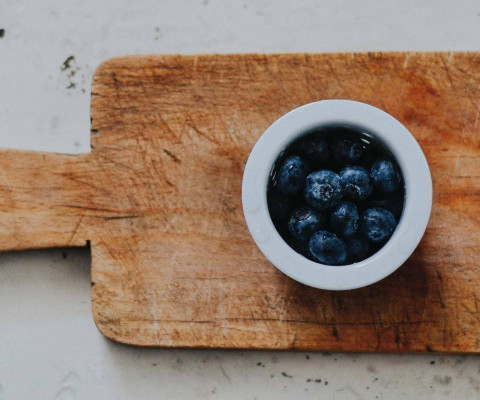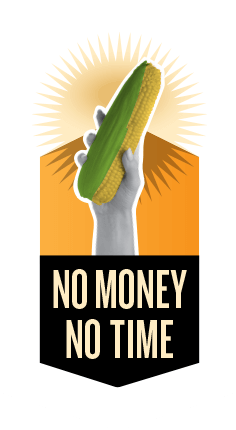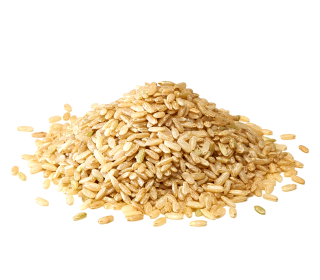
Brown Rice
Rice is enjoyed by people around the world! Did you know that there are over 40,000 varieties and it’s grown on every continent except Antarctica!
Brown rice is considered the most nutritional of the many forms. This is because it retains the bran as it is not milled like white rice that loses a lot of nutrients in the milling process.
Some of the amazing benefits of brown rice include:
- Be Healthier:
Brown rice is a whole grain which helps lower blood sugar levels and decrease risk of type 2 diabetes. One study found that simply replacing white rice with brown can also help to reduce blood glucose levels.
- Healthy Gut:
Brown rice is a good source of fibre which is essential for a healthy bowel function.
- Feel Fuller for Longer:
Compared to white rice, brown rice has a lower GI which helps to prolong digestion due to their slow break down and may help with satiety (feeling full).
Have a RICE day!

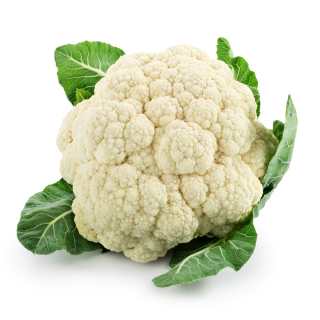
Cauliflower
Cauliflower is an incredibly versatile and nutritious veg that can be used to make rice, pizza crust, hummus, mac and cheese and even mash! Not only are caulis delicious they are packed with goodness too:
- Be Healthier:
Caulis are rich in Vitamin C which is well known for its anti-inflammatory properties and can help to reduce heart disease and cancer.
- Healthy Gut:
As a good source of fibre, cauliflower promotes a regular bowel habit and feeds the healthy bacteria in your gut to promote digestive health.
- Feel Fuller for Longer:
As a good source of fibre, cauliflower can help to slow digestion and promote feelings of fullness, which may help to reduce food consumed throughout the day.
So next time you are cooking, surprise your loved ones with a bunch of cauliFLOWERS!

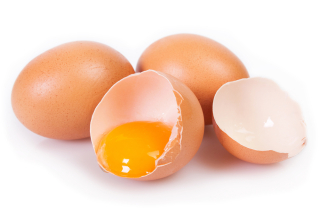
Eggs
Eggs are one of the healthiest foods on the planet. On top of this they are cheap, taste EGGcellent and are easy to cook! Some of the health benefits include:
- Be Healthier:
Eggs contain good quality protein and are a source of healthy fats including omega-3 fats which help in preventing heart disease.
- Better Sports Performance:
Eggs are complete source of protein i.e., they have all the essential amino acids (the part of proteins we need from our diets) to help with maintenance and repair of muscles after strenuous exercise to help with a quicker recovery.
- Feel Fuller for Longer:
Eggs are filling which means you eat fewer calories overall throughout the day. Also, research has shown that eating eggs for breakfast can help in weight loss.
Tip: Store your eggs in the carton in the fridge to keep in the eggy goodness!
Three EGGY facts:
- To produce one egg, it takes a hen 24-26 hours!
- The exact nutrient composition of eggs depends on the diet of the hen. So there may be more than just ethical reasons to buy the fancier free-range and organic variety.
- Eggs contain cholesterol which has led to the myth that eggs are bad for you. But the cholesterol in eggs has almost no effect on your blood cholesterol levels. Your cholesterol levels are more influenced by the saturated and trans fat you eat and an egg only has about 1.5 grams of saturated fat, and zero trans fats. Eggs also contain “good” fats such as omega-3s.

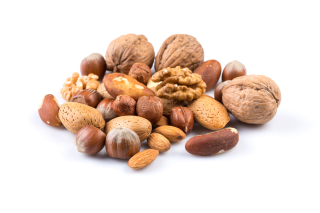
Nuts
Go NUTS for nuts! Did you know Walnuts are the oldest known tree food — they date all the way back to 10,000 BC. So not only have Nuts passed the test of time, they also have heaps of benefits including:
- Be Healthier:
Nuts are a great source of healthy fats (monounsaturated and polyunsaturated fats) which are essential for regulating blood cholesterol and improving heart health. In a review of 25 intervention trials, eating approximately 67g of nuts a day (about half a cup) led to a 5.1% reduction in total cholesterol and 7.4% for LDL (bad cholesterol). Eating nuts regularly has also shown to reduce risk of heart disease, reduce overall mortality and reduce risk of developing type 2 diabetes.
- Better Sports Performance:
Nuts are high in protein which can provide amino acids for the maintenance and repair of muscle protein after strenuous exercise to help with a quicker recovery.
- Healthy Gut:
As a good source of fibre nuts are essential for a healthy bowel function.
- Feel Fuller for Longer:
Although nuts are high in kilojoules, research in over 120,000 healthy men and women, found that eating nuts meant they were less likely to gain weight over the four years studied. The combination of protein, fibre and healthy fats help satisfy the appetite and help in weight management.
Almonds, Brazil nuts, cashews, chestnuts, hazelnuts, macadamias, pecans, pine nuts, pistachios and walnuts are all nuts that are packed full of beneficial nutrients for good health. So next time you’re peckish, maybe grab a bag of nuts.

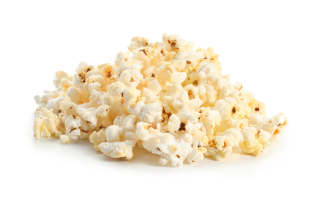
Popcorn (unsalted)
Popcorn is one of the world’s most popular snack foods. It is a special type of corn that ‘pops’ when exposed to heat. Did you know that it can pop to up to 3 feet in the air!
Popcorn is a healthy low-kilojoule snack with a variety of benefits including:
- Be Healthier:
Many people don’t realise this but popcorn is a whole grain food. Research has shown that whole grain intake is beneficial in preventing of type 2 diabetes, heart disease and certain cancers.
- Feel Fuller for Longer:
As a good source of fibre, popcorn can help to slow digestion and promote feelings of fullness, which may help to reduce food consumed throughout the day. Also one study compared feelings of fullness after eating popcorn and potato chips. They found that 63 Kilojoules of popcorn were as filling as 630 Kilojoules of potato chips.
As a fantastic source of fibre and whole grain, popcorn is a healthy low kilojoule snack that can be enjoyed by all.

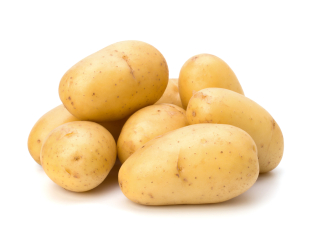
Potatoes
Did you know that potatoes were the first food to be grown in space? In 1996, potato plants were taken into space with the space shuttle ‘Columbia’. This ‘out of space’ vegetable also has a number of health benefits including:
- Be Healthier:
Potatoes are high in potassium with is linked with reduced risk of hypertension and heart disease.
- Support Immune Function:
Potatoes are a good source of vitamin C to help with wound healing and fighting infection.
- Feel Fuller for Longer:
Satiety is the feeling of fullness and loss of appetite that occurs after eating. Potatoes are considered one of the most satiating (filling) foods so may be useful as part of a weight loss diet.
Best eaten boiled or baked. Potatoes are a great side-dish or snack to add to your plate.

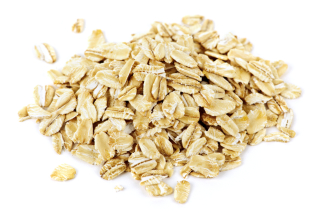
Rolled Oats
Did you know that oats have their very own special day? October 29th is National Oatmeal Day in the US. So in celebration of this magnificent grain, we’ here to tell you all about its many benefits:
- Be Healthier:
Regularly eating oats is important for heart health as research has shown oats reduce your blood pressure, your total cholesterol and LDL (bad) cholesterol.
- Sharper Thinking:
Oats supply a sustained energy source to the brain, which may help people to learn better. A study of school children showed that those who ate oatmeal before school performed significantly better on spatial memory and auditory learning tasks than those who ate a sugar cereal.
- Better Sports Performance:
Oats have a Glycaemic Index of around 50 which is considered as a low GI carbohydrate. This means that when they are digested the carbohydrates in them are absorbed slowly, resulting in a gradual release of glucose into the blood which helps to improve overall endurance and running capacity.
- More Energy:
Oats are a carbohydrate which breaks down slowly to gradually release glucose into the bloodstream, this give you a longer-lasting energy boost throughout the day. Oats are absorbed slower, giving you a longer-lasting boost throughout the day. Oats also contain B vitamins like Niacin and Thiamin, which work together to help your body convert carbohydrates into energy.
- Feel Fuller for Longer:
As a Low GI carbohydrate, oats help to prolong digestion due to their slow break down and may help with satiety (feeling full).
Celebrate National Oatmeal day everyday by enjoying oats for breakfast (as porridge or in muesli). And there’s an added bonus – they’re cheap, at $4 to $5 a kilogram!

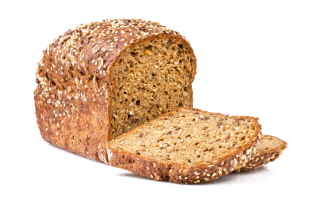
Whole Grain Bread
Whole grain bread is the best thing since, well erm, sliced bread! Some of the wonders of whole grain bread include:
- Be Healthier:
Whole grain diets have been linked to reduced risk of obesity, heart disease, some cancers and type two diabetes.
- More Energy:
Whole grain bread is a good source of B vitamins, iron and healthy carbohydrates. A serve of wholegrain bread has a GI of around 47, which is considered a low GI carbohydrate (compared to white bread which has a GI of around 70). This means these carbohydrates breaks down slowly to gradually release glucose into the bloodstream, this helps to prolong energy throughout the day.
- Healthy Gut:
Whole grain bread is high in dietary fibre which helps to feed “good” gut bacteria which has a number of health benefits. Research found that a diet high in whole grain was associated with lower risk of bowel cancer. Being high in fibre, whole grain bread is beneficial for bowel health and helps in preventing constipation.
- Feel Fuller for Longer:
Compared to white bread, whole grain has a lower GI which helps to regulate blood glucose levels, keeping us fuller for longer, and helping us eat fewer kilojoules throughout the day!
There are a number of different types of amazing whole grain breads, make sure to choose those with visible grains or seeds!

